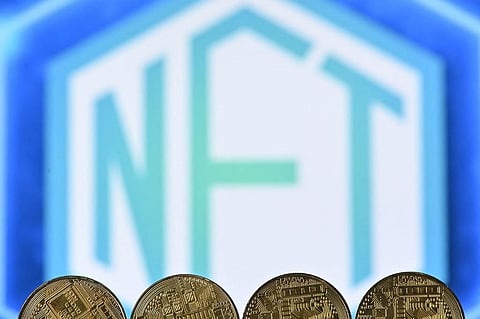

NEW DELHI: Adding non-fungible tokens (NFTs) to an investment portfolio can help in achieving a better balance of risk and return, according to experts.
An NFT is a non-interchangeable unit of data stored on a blockchain, a form of digital ledger that can be sold or traded. It generally uses the same kind of programming as cryptocurrency, like Bitcoin or Ethereum, but that’s where the similarity ends. Physical money of Cryptocurrencies is "Fungible", meaning they can be traded or exchanged for one another while NFTs are Non-fungible.
"NFTs are quite unique digital assets addressing certifiable things like photos, music and video games etc. Above all, they are managed in a digital ledger and traded on the web," PK Mishra, President, All India Gaming Federation (AIGF) said.
According to Mishra, who is also a former bureaucrat and has held key positions in the Indian Government including that of Steel Secretary and Secretary, Department of Personnel and Training (DoPT), digitization of products is enhancing the authentication process, further streamlining transactions and reducing costs.
The blockchain serves as a public ledger, allowing anyone to verify the NFT's authenticity and who owns it. It is an effective way to manage and control sensitive data and records for individuals and organizations.
"NFTs have the potential to make markets more efficient by converting a physical asset into a digital it can eradicate intermediaries, improve supply chains and reinforce security," Mishra stated
"NFTs are created using blockchain technology, which is a system of recording information in a way that is impossible to hack, alter or delete. All NFTs stored on the blockchain have distinct records of authenticity and chain-of-ownership, which, theoretically, prevents them from being subject to mishandling and theft," he added.
It is much easier to divide a digitized version of a building among multiple owners than a physical one. The same goes for a prized piece of jewellery. Through digitization, the market for certain assets can be greatly expanded, leading to greater liquidity and higher prices. All NFTs stored on the blockchain have distinct records of authenticity and chain-of-ownership, which, theoretically, prevents them from being subject to mishandling and theft.